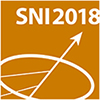Speaker
Description
Pressure increases in vacuum systems of particle accelerators have been observed since almost 50 years. In recent years, the dynamic vacuum turned out to be an intensity limitation in heavy-ion accelerators such as the heavy ion synchrotron SIS18 at GSI. Charge exchanged lost beam ions stimulate the release of gas from the chamber walls and the subsequent pressure increase leads to more beam-loss. Hence, the effect can lead to severe deterioration of the vacuum to the point of complete beam loss and is an issue for new heavy ion accelerators such as the FAIR facility or Spiral2 with highest beam intensities.
To come up against the dynamic vacuum, several measures have been conducted to understand the physics behind the ion-induced desorption and to minimize the yields. The contribution summarizes the perceptions gathered to date, including pressure rise studies, materials analysis and modeling of the desorption process. Latest experiments on the annealing of critical components revealed the possibility to minimize the desorption yield of accelerator-relevant components by two orders of magnitude. The amount and composition of gas contained in materials was measured by thermal desorption spectroscopy and gives insight into the origin of desorbed gas for room temperature systems. At cryogenic systems, gas can be accumulated at the surface over time. Therefore, investigations on desorption of frozen gas ice layers were started.

